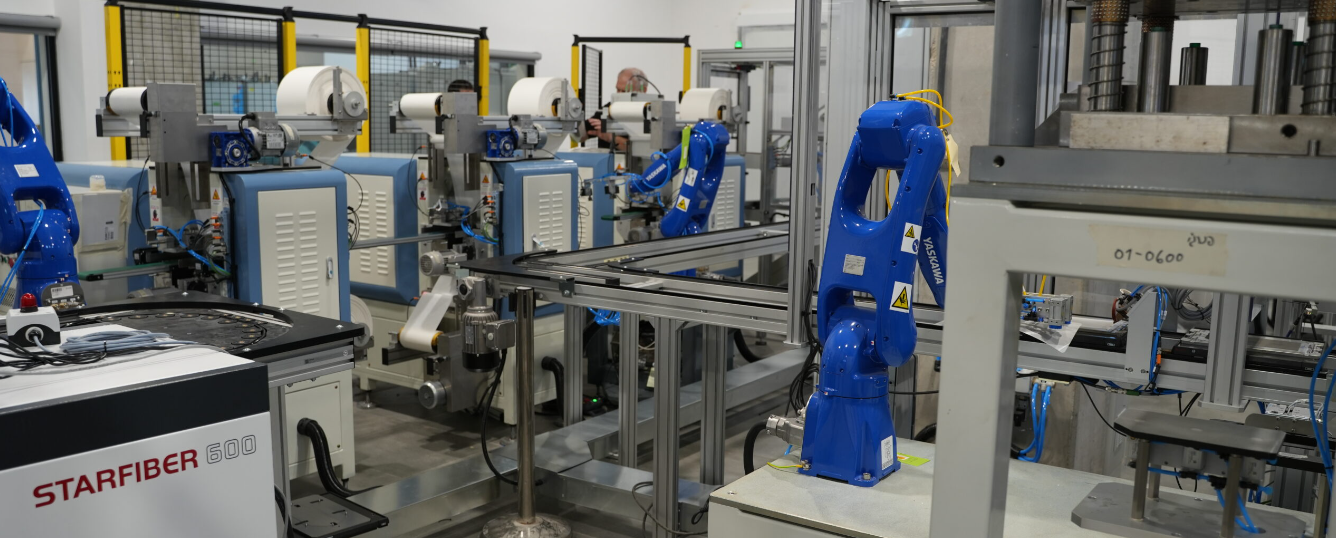

Phinergy, a power generation innovator, has teamed up with US-based electrical contracting firm Rosendin to introduce aluminium-air backup power systems to the American data centre market. The collaboration aims to replace diesel generators with a cleaner, low-carbon alternative for mission-critical facilities and microgrids.

Importance of power backup systems
Power backup systems are vital for modern data centres, maintaining operations during outages or grid issues. Traditional setups pair UPS batteries for instant response with diesel or gas generators for sustained power.
Increasingly, operators are adopting advanced options like Battery Energy Storage Systems (BESS), fuel cells, and renewable integration for greater efficiency and sustainability. With the backup power market valued at USD 7–10 billion and growing rapidly, even brief interruptions can cause major service, data, and financial losses, driving demand for high-availability solutions in cloud and AI workloads.
Chosen from 70 proposals submitted
The technology was chosen from over 70 proposals submitted to the Hub’s Request for Information, which sought clean, scalable backup power solutions for data centres. Following its selection, Phinergy will work with the Hub on a funded project to scale its backup systems to the megawatt level and deploy them in operational data centre environments.
At the heart of the initiative is Phinergy’s Aluminum-Air Generator (AAG), which uses aluminium as fuel to produce electricity without on-site emissions. It harnesses aluminium-air energy systems, producing electricity through a reaction between aluminium, water, and oxygen from ambient air. The process emits no carbon, delivering a clean, sustainable alternative to fossil fuel-based power.
Also Read: Ricardo unveils rare-earth-free aluminium EV motor for a greener future
Engineered for megawatt-scale applications, the AAG can deliver multi-day resilience for hyperscale data centres. Unlike conventional batteries that store oxygen in heavy electrodes, the AAG draws oxygen directly from the air, significantly reducing system weight and enhancing efficiency.
Lightweight, compact, and scalable, the system is well-suited for data centre backup power meeting rising demands for both reliability and environmental compliance. Unlike conventional batteries, it requires no frequent recharging and can provide prolonged backup durations with minimal ecological footprint.
Why this collaboration matters
“This collaboration with Rosendin marks a pivotal step in scaling Phinergy’s aluminium-air technology for the data centre industry—one of the most demanding and fastest-growing energy markets. Rosendin’s strong market presence and deep expertise in mission-critical infrastructure give us a clear path to scale and connect with the right customers. By joining forces, we’re not just replacing diesel—we’re setting a new benchmark for clean, resilient power in the AI era,” said Emmanuel Levy, CEO of Phinergy.
The partnership aims to fast-track the adoption of zero-emission backup solutions within one of the world’s fastest-growing and most energy-demanding industries. By combining Phinergy’s breakthrough aluminium-air technology with San Jose-based Rosendin’s strong market presence and trusted relationships, the collaboration will bring this clean energy solution to the North American data centre market.
Establishing a new benchmark in power backup
Leveraging Rosendin’s proven expertise in scaling emerging technologies, the two companies will bring Phinergy’s AAG solution to the US market, establishing a new benchmark in backup power by delivering:
The Israel-based company has identified the data centre sector as a primary market for its technology, claiming its AAG can deliver around 10MWh per cubic meter, more than double diesel’s 4MWh while offering a lower cost. Beyond its collaboration with Rosendin, Phinergy’s AAG has also been chosen by the Net Zero Innovation Hub for Data Centres, whose members include Data4, Google, Microsoft, Vertiv, and Schneider Electric, as a pivotal technology to help fast-track the industry’s shift toward net-zero operations.
“Our clients simply need more power, and without it, development stops dead/ This is a reply to the major expansion of data centres and large loads, combined with a continuing demand for decarbonised power from owners and jurisdictions. The Phinergy AAG sits in a unique position to meet this need, and we’re thrilled to be their partner in the development and deployment of this solution,” added Emmanuel Levy.
Bill Mazzetti, Senior Vice President at Rosendin, noted that the company has spent the past six years exploring on-premises power systems as alternatives or complements to utility-supplied electricity. Phinergy, a global leader in clean energy innovation, has developed aluminium-air technology to enable zero-emission backup power generation. By using aluminium metal as a clean, energy-dense fuel in place of carbon-intensive fossil fuels, Phinergy’s solution delivers electricity with zero emissions at the point of use, marking a significant shift in backup power technology.
Backed by a fully automated production facility, over a decade of R&D, and a portfolio of more than 30 patents, Phinergy is well-positioned to scale its technology across the data centre and energy infrastructure markets. Headquartered in San Jose, CA, Rosendin is the largest employee-owned electrical contractor in the United States, employing 10,000 people and generating USD 3.7 billion in annual revenue, with projections exceeding USD 5.5 billion in 2025.
United States low-carbon aluminium push
The United States has been working to cut carbon emissions across industries such as automotive, packaging, energy, and consumer products by producing low-carbon aluminium sustainably. A recent report by environmental consulting firm ICF, in partnership with the Aluminum Association, highlights North America as a leader in this effort, with a carbon footprint 50 per cent lower than the global average. This achievement stems from greater use of low-carbon primary aluminium, expanded recycling, and decades of emission-reduction initiatives.
However, reaching net-zero by 2050 will demand far greater action and investment from both public and private sectors. The report’s roadmap calls for a 24 per cent reduction in aluminium production emissions by 2030, 63 per cent by 2040, and 92 per cent by 2050 compared with 2021 levels. Over the same period, North America’s primary aluminium output is expected to rise by about 80 per cent, driven by increasing demand for sustainable solutions across multiple industries.
Also Read: Graphene’s aluminium-ion battery innovation earns patent nod
Responses








